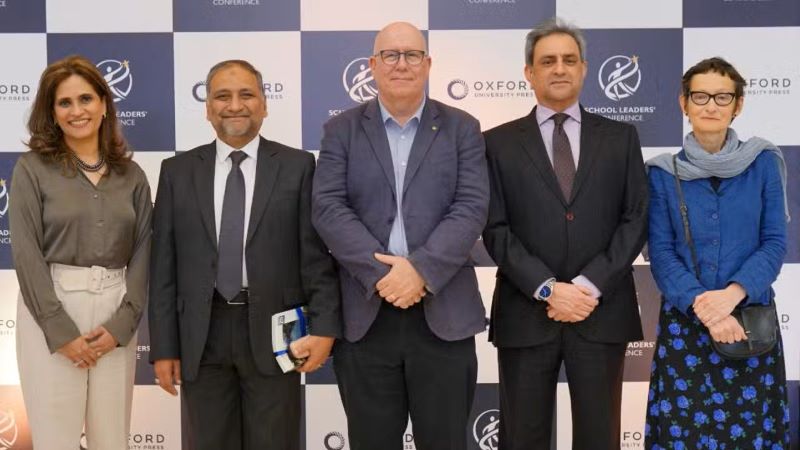KARACHI: Oxford University Press Pakistan (OUPP) recently organized a School Leaders’ Conference in Karachi, convening educators, policymakers, and academic specialists from across the region. The city, serving as Pakistan’s primary economic and educational center, offered an ideal setting for substantive dialogue on innovative strategies to enhance national standards in teaching, learning, and assessment.
In his opening remarks, Arshad Saeed Husain, Managing Director of OUP Pakistan, outlined the pressing challenges within the country’s education sector. He stressed that schools must place a greater emphasis on skills-based curricula, comprehensive teacher development, modern pedagogical methods, holistic education, and digital literacy. “Only then can we equip students to thrive in a rapidly evolving global landscape,” he stated.
Concluding his address, Husain reaffirmed the organization’s commitment: “Oxford University Press will continue to be on this journey with you. We bring our heritage of excellence, our commitment to teacher development, and our belief that every child in Pakistan deserves learning that is engaging, rigorous, and humane.”
Held under the theme “Empowering Learners for Impact,” the conference featured insights from a prominent group of education leaders, including Shahnaz Wazir Ali, Dr. Penelope Woolf, Yasmeen Rajbhoy, Iffat Basrai, Hassan Khan, Minhas Tejani, Dr. Stephen Lyon, and Fozia Ahsan Farooqui. They shared their expertise on how innovation and collaboration can catalyze significant improvement in schools.
Dr. Penelope Woolf, Director of Impact & Learning Design at OUP, commented: “At Oxford University Press, we are committed to developing educational solutions that deliver real impact in the most effective way possible. By combining the best in research-informed learning design and pedagogy with our extensive educational experience and expertise globally, we develop products and services that will support teachers, advance knowledge and learning, and deliver the best educational outcomes for all.”
Renowned educationist and former parliamentarian Shahnaz Wazir Ali offered a critical perspective, noting, “When the human intellect is exploring outer space, diving into the depths of the ocean, and unleashing its genius through invention and innovation, our children’s minds are still held back by an education system that is rigid, inflexible, and stuck in outdated structures.”
She emphasized that to improve learning outcomes and enable every child to realize their potential, Pakistan must move away from excessive regulation and centralized control. She advocated for increased investment in quality teaching and learning, positioning both teachers and students at the core of the reform process.
The day’s agenda included presentations and panel discussions centered on key topics such as preparing students for a fast-changing world, driving change through innovative teaching practices, fostering collaborative leadership in education, and adopting a digital future with OUPP’s blended learning resources.
The conference concluded with an interactive question-and-answer session, providing attending educators an opportunity to engage directly with OUP leadership and assessment specialists.














